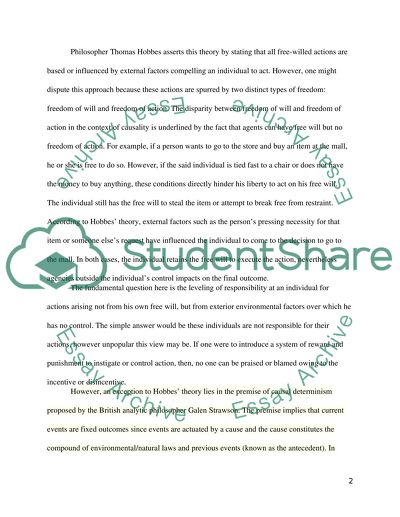Cite this document
(“Free Will, Determinism and Moral Responsibility Term Paper”, n.d.)
Retrieved de https://studentshare.org/philosophy/1392309-free-will
Retrieved de https://studentshare.org/philosophy/1392309-free-will
(Free Will, Determinism and Moral Responsibility Term Paper)
https://studentshare.org/philosophy/1392309-free-will.
https://studentshare.org/philosophy/1392309-free-will.
“Free Will, Determinism and Moral Responsibility Term Paper”, n.d. https://studentshare.org/philosophy/1392309-free-will.


